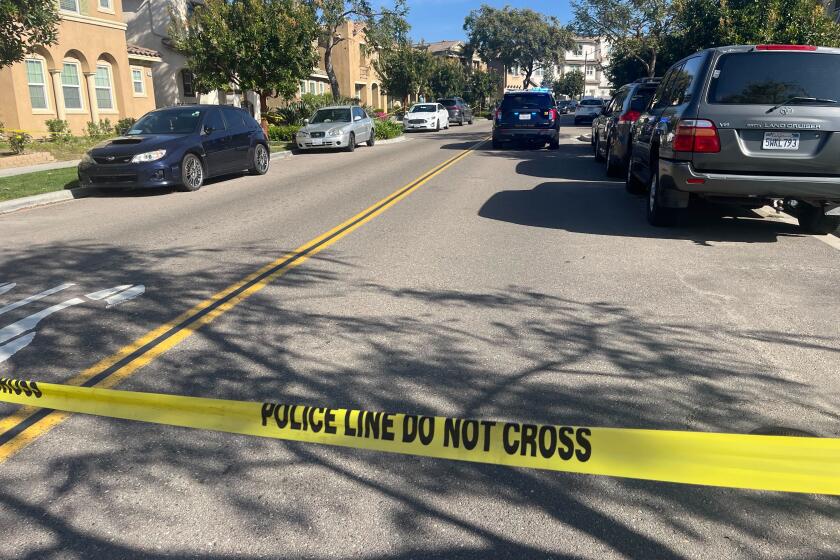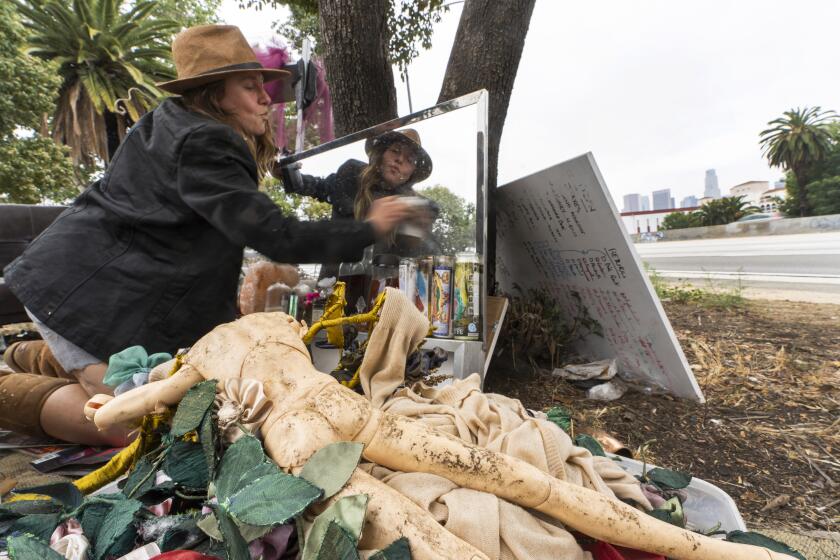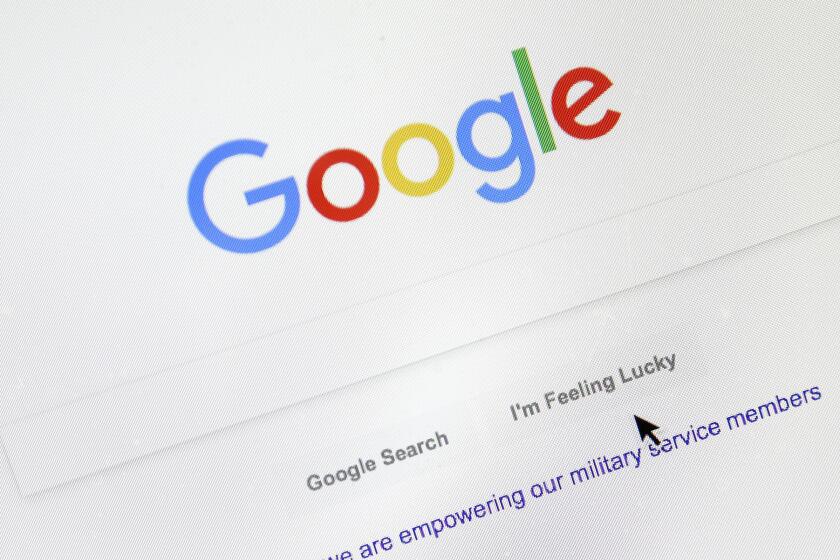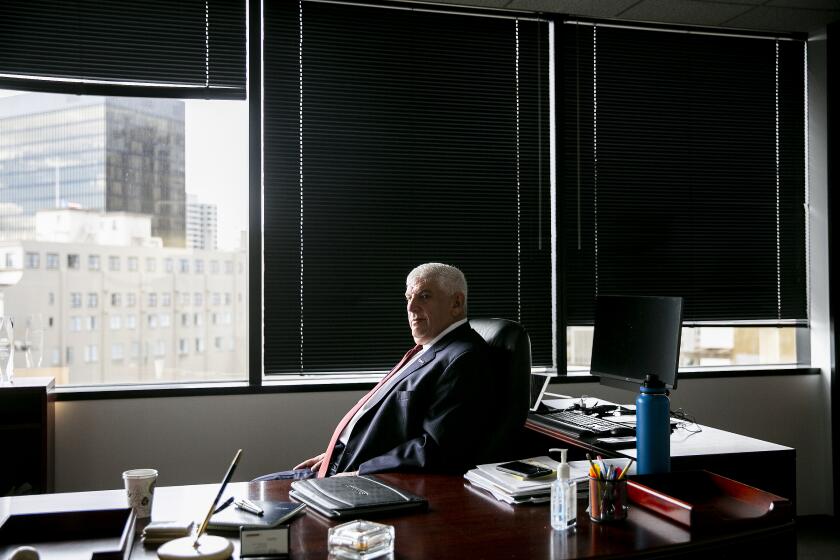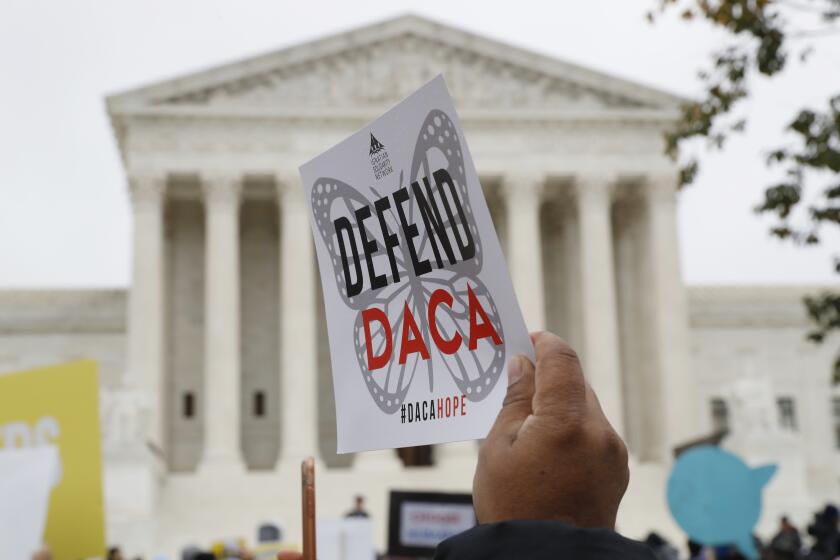Provocation demands firm, careful U.S. response
Sony Pictures’ decision to wash its hands of “The Interview” — a crude comedy scheduled to debut Dec. 25 — made sense from a narrow corporate point of view. When a shadowy hacker group went from tormenting Sony with leaks of embarrassing emails to threatening deadly attacks against theaters showing the movie, the company had to consider its legal exposure — even if the threats were almost certainly hollow. The Hollywood Reporter also reported that the decision could make it easier for Sony to get back more of the $200 million the studio spent making and promoting the movie from its insurers.
But the report from the Obama administration Wednesday that the government of North Korea — incensed over “The Interview’s” mockery of Pyongyang and its depiction of leader Kim Jong-un’s assassination — was behind the hacking and the threats to movie theaters gives these unprecedented developments a much broader dimension.
Sony’s predicament doesn’t just raise fresh alarms about a coming era of cyberwar. Its decision sets an awful precedent in which any nation, group or institution that doesn’t like potentially unflattering depictions in a movie, TV or book can make threats — however hollow — and expect a cowering response.
Only a few precedents have much applicability to this debacle. In 1989, Iran’s most powerful leader, Ayatollah Ruhollah Khomeini, called on Muslims to kill British author Salman Rushdie and anyone involved in the publication of his novel “The Satanic Verses,” which many Muslims considered blasphemous. Rushdie went into hiding for many years, but now lives close to a normal life. However, the Japanese translator of his book was stabbed to death, his Norwegian publisher was shot, an Italian book company executive was knifed and several British book stores were firebombed.
British authorities provided protection to Rushdie. But the British government and its political and media establishment didn’t provide the full-throated defense of free speech and harsh critique of the ayatollah that the situation merited.
We are relieved that we aren’t seeing a parallel U.S. reaction to the intimidation campaign targeting “The Interview” — starting with President Obama. On Thursday, White House press secretary Josh Earnest said the administration considered the campaign a serious national security matter. Off the record, officials spoke of a “proportional response” to Pyongyang’s mendacity and said the president had been closely monitoring developments.
The U.S. must be careful not to overreact and prompt even worse outcomes. North Korea and its leaders have a long history of bizarre, unpredictable behavior; that’s why “The Interview’s” producers Seth Rogen and Evan Goldberg chose to satirize the insular nation in the first place. Also, Pyongyang already faces sweeping sanctions over its nuclear weapons program and has such limited engagement with the rest of the world that it’s not easy to come up with a list of possible new punishments.
Nevertheless, silence and inaction should not be options. Something terrible just happened. The U.S. government needs to figure out a response of some kind that reduces the likelihood that this appalling assault on Sony Pictures inspires copycats.
Get Essential San Diego, weekday mornings
Get top headlines from the Union-Tribune in your inbox weekday mornings, including top news, local, sports, business, entertainment and opinion.
You may occasionally receive promotional content from the San Diego Union-Tribune.
